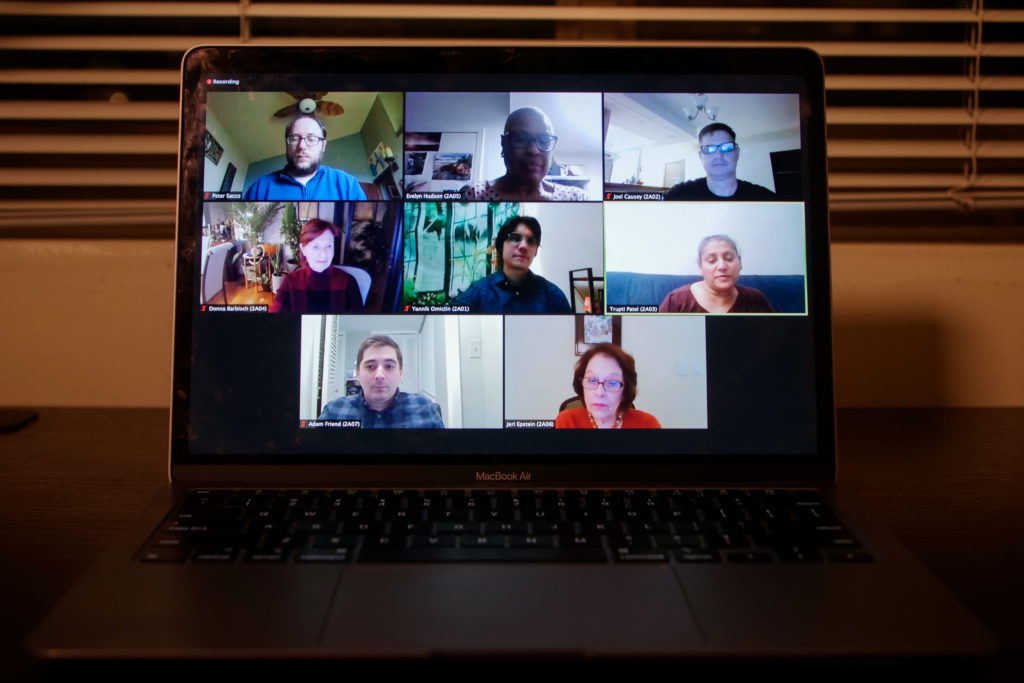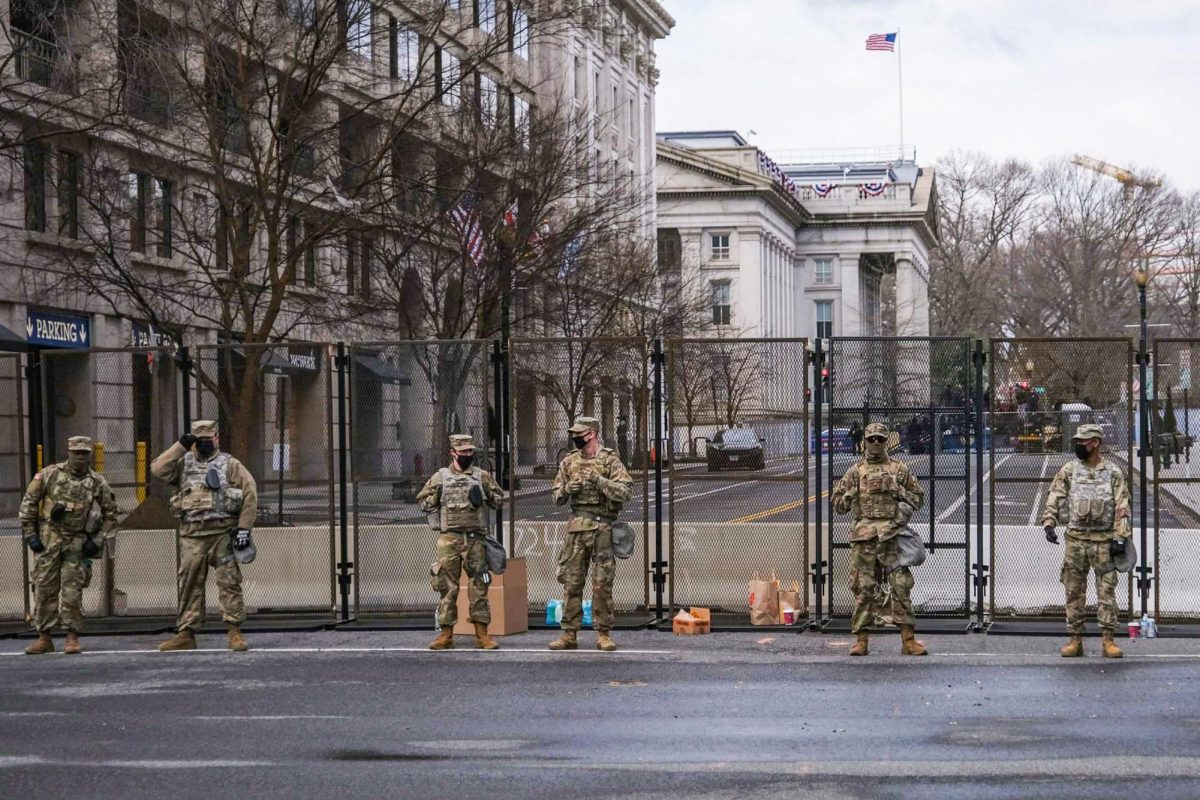A local governing body solidified plans to create three committees involving commissioners and constituents during a monthly meeting Wednesday.
The Foggy Bottom and West End Advisory Neighborhood Commission voted unanimously to create three committees that will tackle business and development, transportation and infrastructure and strategic planning and coordination. Jeri Epstein, the chair of the commission, said the committees will feature commissioners, “business members,” members of the University community and other local residents who can weigh in on neighborhood governance.
Here are some the meeting’s highlights:
Approving committees
Epstein said she will chair the transportation and infrastructure committee alongside alumnus James Harnett, who chaired the ANC until his term expired last month. She said Commissioner Joel Causey will chair the business and development committee, while commissioners Donna Barbisch and Adam Friend will co-chair the strategic planning and coordination committee.
Commissioners had previously mentioned plans to create a neighborhood life committee chaired by commissioners Trupti Patel and Yannik Omictin, but the ANC didn’t include any such committee in a vote. Commissioners said they will consider adding additional committees and specify basic function and requirements once they finish updating its website.
Epstein said the committees will create a “forum” where locals can have a say in matters brought before the commission and carve out the time to discuss local issues, like business development.
“What I’d like to see is community involvement and community engagement, and that was the whole point,” she said. “Some of us will be here for two years. Some may be here for four years. A lot of these people have lived here for 50 years. I want to make sure they have a voice in everything we do, and the way we let them have a voice is to encourage them to be part of a committee.”
Epstein said she’s held “a couple of good meetings” with the transportation and infrastructure committee so far where members discussed roads, sidewalk repairs and compliance with the Americans with Disabilities Act. She said the first business and development meeting last week featured more than 20 residents from the Columbia Plaza Apartments who discussed plans for the facility’s development.
Investigating COVID-19 parties
Metropolitan Police Department Lieutenant Ledet Williams said MPD officers assigned “enhanced patrols” around an ANC district covering the northern and western ends of campus. She said she’s working with GW Police Department officers on a complaint about “students partying in a residential building” where security has struggled to handle the situation.
Williams said she’s heard of individuals in the neighborhood holding large gatherings and throwing up, noting how the recent off-campus complaint, which came via text, involved a “party bus” that officers had to escort away. She said residents should dial 911 as opposed to the District’s 311 non-emergency hotline so officers can track the incident and confront the issue in person.
“We can get officers out there, boots on the ground, visually see what’s going on and address the issue when it’s happening – not an hour later when we get a text tip that finally comes in if someone does their job,” Williams said. “The 911 system is, I think, more robust in having our response show up in a timely manner.”
Residents and students voiced their concerns about a trend of off-campus parties that percolated off campus, despite COVID-19 guidelines last semester.
Continuing 2100 Penn construction
The ANC unanimously approved an extension of an after-hours permit for Boston Properties, a real estate company spearheading the construction project at 2100 Pennsylvania Ave. The permit will be effective from March through the end of July and allow the company to continue construction later into the night from 7 p.m. to 3 a.m. – with “noisy work” stopping at midnight – and earlier into the morning from 6 a.m. to 7 a.m. with a restriction against vehicle motion alarms.
The ANC also authorized after-hours construction on Sundays from 9 a.m. to 7 p.m. and Emancipation Day, tabbed for April 16, from 7 a.m. to 7 p.m.
Sean Sullivan, the vice president for development at Boston Properties, said inspection delays at 2100 Penn has set construction work at the site behind schedule during the pandemic. He added that construction stoppage amid security measures ahead of the presidential inauguration, and pauses during recent snowfall have prolonged work.
Sullivan said the new permit is an extension of Boston Properties’ previous after-hours permit that was initiated in December and is set to expire at the end of February. The company has relied on after-hours work in hopes of accelerating the project while fewer students live on campus this academic year.
“The goal here – overarching goal – is to get as much of this work done as possible and to catch up on as much time as we can before the students can arrive back on campus, which we anticipate they will be back and in more full force this fall, and then just generally, the workforce should be coming back and the neighborhood will be more populated this fall.”








